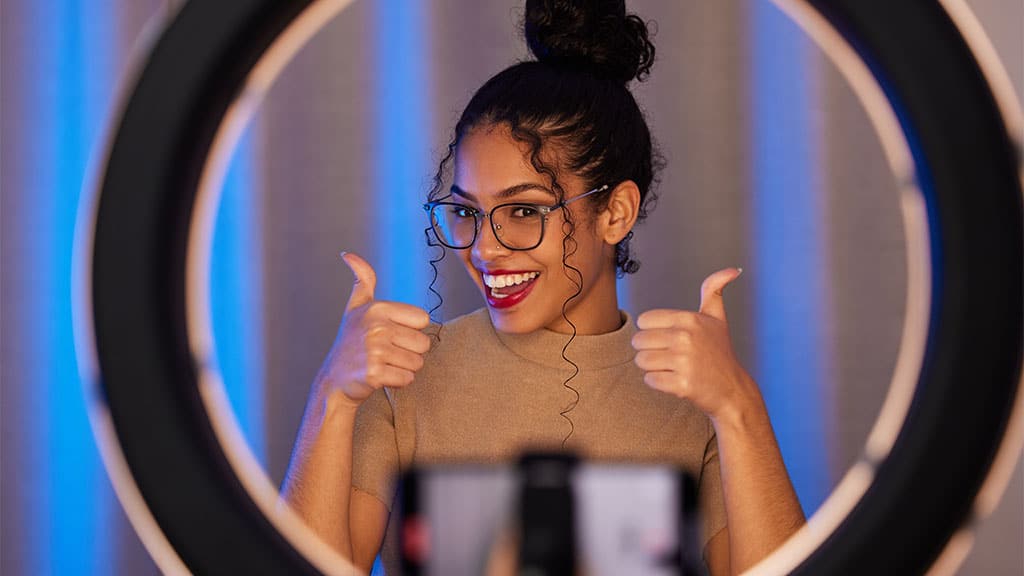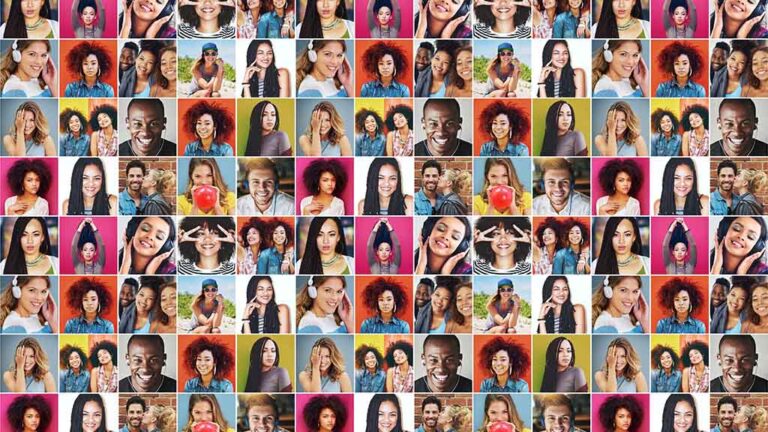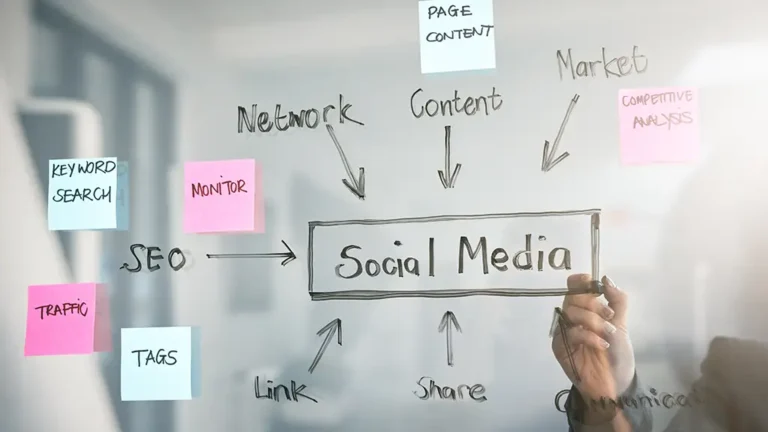The Role of Influencer Marketing in 2025
Influencer marketing has grown from a niche strategy to a central pillar of many brands’ marketing efforts. In 2025, it continues to evolve as audiences demand authenticity, platforms introduce new tools, and data-driven strategies become more sophisticated. What began as a way to amplify brand messages through partnerships with online personalities has transformed into a dynamic and highly adaptable channel for reaching specific audiences.
The success of influencer marketing lies in its ability to connect brands with engaged communities. Influencers act as trusted intermediaries, blending personal recommendations with creative storytelling. This unique dynamic fosters trust and resonates deeply with audiences who value relatability and authenticity over traditional advertising.
As the landscape becomes more crowded, brands must navigate new challenges and opportunities. Emerging platforms, evolving audience expectations, and innovative technology are reshaping how influencer collaborations are formed and executed. For businesses aiming to stay competitive, working with a social media ad agency can help identify the right influencers, design impactful campaigns, and measure success effectively in this rapidly changing space.
Micro-Influencers and Niche Audiences
While mega-influencers with millions of followers once dominated the influencer marketing space, micro-influencers have taken center stage in 2025. These creators, typically boasting follower counts between 1,000 and 100,000, have proven highly effective at engaging niche audiences. Their smaller, more focused communities often trust their recommendations, leading to higher engagement rates and stronger conversions.
The rise of micro-influencers reflects a broader shift toward authenticity and relatability. Unlike celebrity influencers, who may seem out of touch with everyday experiences, micro-influencers are often viewed as peers by their followers. Their content feels genuine, and their endorsements carry significant weight because they appear less commercialized. For example, a fitness micro-influencer sharing their journey with a new health product is more likely to resonate with their audience than a generic ad from a major athlete.
Niche targeting is another key advantage of micro-influencers. Whether it’s vegan cooking, indie gaming, or sustainable fashion, micro-influencers cater to specific interests, making them ideal for brands seeking to connect with particular demographics. Their ability to reach passionate, engaged communities ensures that marketing messages are delivered to audiences who are already primed to care.
Partnering with micro-influencers also provides cost-effectiveness. Their rates are often more affordable than those of mega-influencers, allowing brands to work with multiple creators simultaneously or invest in long-term collaborations. This scalability makes micro-influencers an attractive option for businesses of all sizes.
The Impact of Emerging Platforms
In 2025, the social media landscape is more fragmented than ever, with new platforms continually entering the scene. While TikTok, Instagram, and YouTube remain staples of influencer marketing, emerging platforms like BeReal, Lemon8, and Threads are creating fresh opportunities for brand-influencer collaborations.
BeReal’s emphasis on unfiltered, candid content has shifted the focus away from overly polished posts, making it a perfect platform for authentic influencer partnerships. Influencers on BeReal can share behind-the-scenes moments or daily routines, providing a more genuine connection with their audience. Similarly, Lemon8 blends creativity and community, allowing influencers to produce visually engaging yet personal content that feels less commercialized.
Threads, on the other hand, is revolutionizing how text-based interactions work in influencer marketing. Its integration with Instagram and focus on conversational engagement enables influencers to foster meaningful dialogues with their followers. Brands can leverage this platform to create deeper connections by hosting Q&A sessions, initiating discussions, or sharing insights.
Early adoption is key when exploring these emerging platforms. By establishing a presence before they become saturated, brands and influencers can gain a competitive edge, capturing attention in spaces where competition is still relatively low. Additionally, experimenting with different content formats and styles on these platforms allows brands to identify what resonates best with their audience.
The rise of new platforms underscores the importance of adaptability in influencer marketing. Staying ahead of trends and embracing innovation ensures that brands remain relevant and connected with their target audience, regardless of where the next big conversation happens.
The Shift Toward Long-Term Partnerships
In 2025, brands are increasingly prioritizing long-term partnerships with influencers over one-off collaborations. This shift reflects a growing understanding of the value that sustained relationships bring to both brands and influencers. By building deeper connections, brands can foster consistency in messaging, create authentic endorsements, and maintain ongoing engagement with the influencer’s audience.
Long-term partnerships allow influencers to develop a genuine affinity for the brand, which translates into more believable and impactful promotions. When influencers repeatedly feature a product or service, it reinforces trust with their audience, as the relationship appears rooted in genuine appreciation rather than transactional motives. For example, a skincare influencer partnering with a brand over a year can share their journey, showcase long-term results, and answer audience questions in detail.
This approach also benefits brands by offering opportunities for strategic planning and creative storytelling. With longer timelines, brands can collaborate with influencers on comprehensive campaigns, including product launches, seasonal promotions, and exclusive collaborations. This continuity ensures a stronger presence in the influencer’s content and allows for iterative improvements based on audience feedback.
Brands that invest in long-term partnerships often see better ROI, as the relationship extends beyond a single post or campaign. Influencers become brand ambassadors, advocating for the brand in organic, unsponsored content and creating an ongoing association that strengthens brand recognition and loyalty.
Influencers as Content Creators
In 2025, influencers are not just amplifiers of brand messages; they are valuable content creators who bring unique creativity and storytelling expertise to marketing campaigns. This evolution highlights the dual role influencers play as both media channels and collaborators capable of producing high-quality, engaging content.
Influencers have a deep understanding of their audience’s preferences and platform-specific trends, making them uniquely equipped to craft content that resonates. For example, a travel influencer might create a visually stunning video showcasing a destination while seamlessly integrating a brand’s message into the narrative. Their ability to tailor content to their followers ensures that branded messages feel organic rather than disruptive.
Brands increasingly collaborate with influencers to co-create content, tapping into their creativity and insights. This might involve influencers developing exclusive content for the brand’s channels or working together to design products or campaigns. For instance, a fashion brand might partner with an influencer to design a capsule collection, leveraging their style and credibility to reach a broader audience.
Additionally, influencers’ expertise in emerging content formats, such as short-form video or AR-driven experiences, makes them valuable partners for staying ahead of social media trends. By incorporating influencers into the content creation process, brands can produce more dynamic, platform-specific content that engages audiences effectively.
Metrics That Matter in 2025
As influencer marketing matures, brands are moving beyond vanity metrics like follower count to focus on meaningful performance indicators that demonstrate real impact. In 2025, engagement, authenticity, and conversions are the metrics that matter most.
Engagement metrics, such as likes, comments, shares, and saves, provide a clearer picture of how well influencer content resonates with their audience. High engagement rates indicate that followers are actively interacting with the content, which is a stronger indicator of success than sheer reach. For instance, an influencer with a smaller, highly engaged audience can often drive more meaningful results than a mega-influencer with a disengaged following.
Authenticity is another critical metric. Audiences are increasingly discerning, and they value genuine endorsements over overtly promotional content. Brands are using sentiment analysis tools to gauge audience reactions and ensure that partnerships align with their values. Positive, authentic interactions between influencers and their followers contribute to stronger brand trust and loyalty.
Conversions—whether they involve website visits, sales, or sign-ups—are the ultimate measure of an influencer campaign’s ROI. Tracking these outcomes requires effective attribution models, such as unique discount codes, affiliate links, or pixel tracking. For example, a beauty influencer promoting a skincare product might use a personalized discount code to drive purchases, allowing the brand to measure the campaign’s direct impact.
By focusing on these advanced metrics, brands can evaluate the true effectiveness of influencer partnerships and refine their strategies for future campaigns. This data-driven approach ensures that investments in influencer marketing deliver tangible, measurable results.
The Role of AI and Data Analytics
In 2025, artificial intelligence (AI) and data analytics have become indispensable tools in influencer marketing, revolutionizing how brands identify, collaborate with, and measure the performance of influencers. AI-powered platforms can sift through vast amounts of social media data to identify influencers whose audiences align perfectly with a brand’s target demographics. This eliminates guesswork and ensures partnerships are strategically aligned from the outset.
AI also helps analyze historical data, including engagement rates, audience growth trends, and the authenticity of an influencer’s followers. For instance, brands can use AI tools to detect fake followers or bots, ensuring their marketing budgets are spent on authentic partnerships. This transparency has become crucial in building trust and avoiding wasted investments.
Data analytics takes influencer marketing a step further by predicting campaign outcomes. By analyzing past performance and audience behavior, AI can estimate the likely engagement and ROI of a proposed campaign. Brands can use this information to optimize their content strategy, adjust messaging, or even select different influencers based on predicted performance.
Moreover, AI streamlines campaign management. Automated tools handle tasks like tracking affiliate links, analyzing sentiment in comments, and generating reports, freeing up marketers to focus on creative strategy. For example, a brand can use AI to monitor how many sales a specific influencer generates in real time, enabling quicker adjustments to campaigns.
The integration of AI and data analytics has made influencer marketing more precise and effective. Brands that leverage these technologies can better align their efforts with audience expectations and achieve higher ROI in a competitive landscape.
Influencers and Brand Activism
Gen Z and Millennials, who make up a significant portion of influencer audiences, increasingly expect brands and influencers to take stands on social and environmental issues. This shift has made brand activism a defining element of influencer marketing in 2025. Audiences are no longer satisfied with neutral stances; they want to see their favorite influencers and brands champion causes that matter to them.
Influencers play a pivotal role in this movement. Many have built their platforms by advocating for specific issues, whether it’s sustainability, mental health, diversity, or social justice. When these influencers partner with brands, audiences expect alignment in values. A mismatch between an influencer’s advocacy and a brand’s practices can lead to backlash, making authenticity and genuine commitment essential.
Brands that embrace brand activism must tread carefully. Performative activism—appearing to support a cause without meaningful action—can damage credibility and alienate audiences. For example, a fashion brand collaborating with an influencer advocating for sustainability must back up its messaging with transparent practices, such as eco-friendly materials or fair labor policies.
When done authentically, aligning with advocacy-driven influencers can amplify a brand’s message and build stronger emotional connections with audiences. These partnerships create an opportunity for brands to showcase their values while leveraging the influencer’s platform to reach highly engaged communities.
Challenges in Influencer Marketing
Despite its many benefits, influencer marketing in 2025 comes with its share of challenges. One major issue is maintaining authenticity in a crowded market. As influencer partnerships become more common, audiences are becoming increasingly skeptical of overly promotional content. This creates pressure for brands to strike the right balance between effective advertising and genuine endorsements.
Ad fatigue is another significant challenge. With so many influencers promoting products and services, audiences may feel overwhelmed or disconnected from branded content. Brands must find creative ways to stand out while ensuring their campaigns feel fresh and engaging.
Transparency is also a growing concern. Regulations around disclosure have tightened, requiring influencers and brands to clearly label sponsored content. While this enhances trust, it also adds complexity to campaign execution. Failing to comply can lead to penalties and damage to both the influencer’s and the brand’s reputation.
Navigating these challenges requires careful planning and collaboration. Brands must focus on building authentic relationships with influencers, prioritize transparency in their campaigns, and continuously adapt to evolving audience expectations.
Future Trends in Influencer Marketing
The future of influencer marketing is bright, with several emerging trends set to shape the industry in the coming years. One such trend is the rise of virtual influencers. These AI-generated personas are gaining popularity for their ability to deliver consistent, customizable content without the unpredictability of human influencers. Virtual influencers offer unique opportunities for brands to experiment with storytelling and engagement in innovative ways.
Hybrid models that combine traditional influencer campaigns with user-generated content are also on the rise. For example, brands might encourage audiences to participate in campaigns alongside influencers, creating a sense of community and amplifying reach through organic sharing.
Another key trend is the increasing importance of social commerce. Influencers are becoming integral to the shopping journey, with features like shoppable posts and affiliate links streamlining the path from inspiration to purchase. This integration of content and commerce creates a seamless experience that benefits both brands and consumers.
Finally, personalization will play a greater role in influencer marketing. AI tools will enable brands to deliver highly tailored campaigns that speak directly to individual audience segments, enhancing relevance and engagement.
The influencer marketing landscape in 2025 is dynamic and full of opportunity. Brands that embrace innovation, maintain authenticity, and adapt to changing trends will continue to thrive in this rapidly evolving space.

















